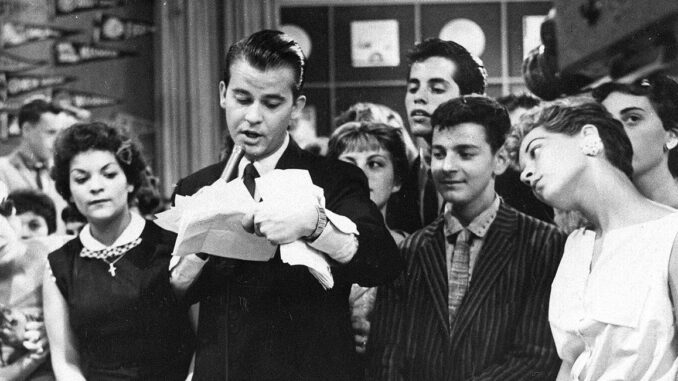
“This Week” looks back at the key events from this week in history.
Aug. 1
1936: The Olympics opened in Berlin with a ceremony presided over by Adolf Hitler.
1966: Charles Joseph Whitman, 25, went on an armed rampage at the University of Texas in Austin that killed 14 people.
1971: The Concert for Bangladesh, an all-star benefit organized by George Harrison of The Beatles and sitar player Ravi Shankar, was held at Madison Square Garden in New York.
1981: MTV began its American broadcast; the first music video aired on the new cable TV network was “Video Killed the Radio Star” by The Buggles.
Aug. 2
1876: Frontiersman “Wild Bill” Hickok was shot and killed while playing poker at a saloon in Deadwood, Dakota Territory, by Jack McCall.
Aug. 3
1492: Christopher Columbus set sail from Palos, Spain, on his first voyage to the present-day Americas.
1936: Jesse Owens of the United States won the first of four gold medals at the Berlin Olympics as he took the 100-meter sprint.
Aug. 4
1790: The U.S. Coast Guard began when President George Washington signed a measure authorizing a group of revenue cutters to enforce tariff and trade laws.
1916: The United States agreed with Denmark to purchase the Danish Virgin Islands for $25 million.
1944: Fifteen-year-old diarist Anne Frank was arrested with her sister, parents and four others by the Gestapo after hiding for two years inside a building in Amsterdam.
Aug. 5
1914: What’s believed to be the first electric traffic light system was installed in Cleveland, Ohio, at the intersection of East 105th Street and Euclid Avenue.
1957: The teenage dance show “American Bandstand,” hosted by Dick Clark, made its network debut on ABC-TV.
1962: Movie star Marilyn Monroe, 36, was found dead in her Los Angeles home; her death was ruled a probable suicide from “acute barbiturate poisoning.” South African anti-apartheid activist Nelson Mandela was arrested on charges of leaving the country without a passport and inciting workers to strike; it was the beginning of 27 years of imprisonment.
Aug. 6
1945: During World War II, the U.S. B-29 Superfortress Enola Gay dropped an atomic bomb code-named “Little Boy” on Hiroshima, Japan, resulting in an estimated 140,000 deaths. (Three days later, the United States exploded a nuclear device over Nagasaki; five days after that, Imperial Japan surrendered.)
1991: The World Wide Web made its public debut as a means of accessing webpages over the Internet. TV newsman Harry Reasoner died in Norwalk, Connecticut, at age 68.
Aug. 7
1789: Congress established the U.S. Department of War.
1882: The famous feud between the Hatfields of West Virginia and the McCoys of Kentucky erupted into full-scale violence.
1942: U.S. and other allied forces landed at Guadalcanal, marking the start of the first major allied offensive in the Pacific during World War II. (Japanese forces abandoned the island the following February.)
Aug. 8
1815: Napoleon Bonaparte set sail for St. Helena to spend the remainder of his days in exile.
1963: Britain’s “Great Train Robbery” took place as thieves made off with 2.6 million pounds in banknotes.
